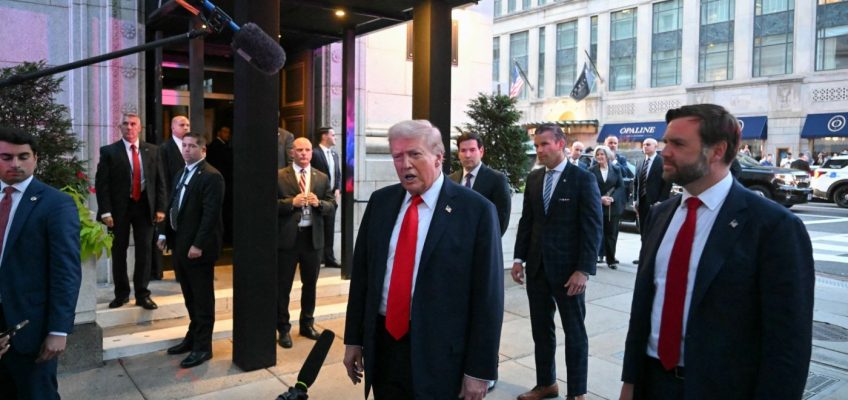By WILL WEISSERT
WASHINGTON (AP) — President Donald Trump is having dinner Tuesday night at a seafood restaurant near the White House, promoting his deployment of the National Guard and federalizing the police force in an effort to crack down on crime in the nation’s capital.
Related Articles
Trump tries to soothe Qatar after Israeli strikes but stops short of decrying another ally
Plans in the works for Korean workers detained in raid to go home while fear lingers for residents
Chicagoans change routines as immigration crackdown looms. Some carry passports and avoid stores
Alex Jones asks U.S. Supreme Court to hear appeal of $1.4 billion Sandy Hook judgment
Supreme Court to quickly consider if President Donald Trump has power to impose sweeping tariffs
His motorcade speeding the short distance to Joe’s Seafood, Prime Steak & Stone Crab on 15th Street in the northwestern quadrant of the city follows weeks of the president boasting about mobilizing federal authorities and the military that he says have made Washington “a safe zone.”
Some restaurants have reported drops in reservations since Trump first announced the federal crackdown on Aug. 7, while there have been frequent street protests decrying his actions. Increased military and police presence also has occasionally sparked standoffs between residents and authorities in normally quiet neighborhoods.
Trump has nonetheless said repeatedly that he’s spoken to friends who tell him local restaurants are full and that people have noticed a drop in crime. He says he’s also heard that people appreciate crews working to remove homeless encampments as part of the crackdown.
The president had suggested previously that he might be heading out to dinner for a firsthand look.
“I think it’s something we could consider doing. Love to do it,” Trump told reporters last week in the Oval Office when asked about venturing out to dinner beyond the White House. “I love the White House food, but after a while, I could see going to a nice restaurant. It’s safe.”
Trump rarely dines away from the White House when he’s in Washington. And those outings have gotten even less common since he sold the hotel bearing his name a few blocks away, which was a key meeting point for administration officials and supporters during his first term.
The White House reported Tuesday that there had been nearly 2,200 arrests since Trump first announced the Washington crackdown on Aug. 7.
In addition to Washington, Trump deployed the National Guard to Los Angeles in June and has threatened to send troops to other, largely Democratic cities, including Baltimore, New Orleans and Chicago — where state and local authorities already are bracing for operations to sharply increase immigration enforcement.
On Saturday, Trump posted a parody image from “Apocalypse Now” featuring a ball of flames as helicopters zoom over the lakefront and skyline of Chicago, the nation’s third-largest city.
“‘I love the smell of deportations in the morning,’” Trump wrote on his social media site. “Chicago about to find out why it’s called the Department of WAR.”
In the post, Trump offered no details beyond the label “Chipocalypse Now,” a play on the title of Francis Ford Coppola’s dystopian 1979 film set in the Vietnam War, in which a character says: “I love the smell of napalm in the morning.”
That post came after last week, when Trump signed an executive order seeking to rename the Defense Department as the Department of War — even after months of campaigning to be considered for the Nobel Peace Prize. The renaming requires congressional approval.
In his own post in response, Democratic Illinois Gov. JB Pritzker called Trump a “wannabe dictator.” He has joined state and city officials — and many Chicago residents — in decrying the idea of a federal crackdown as unnecessary.




